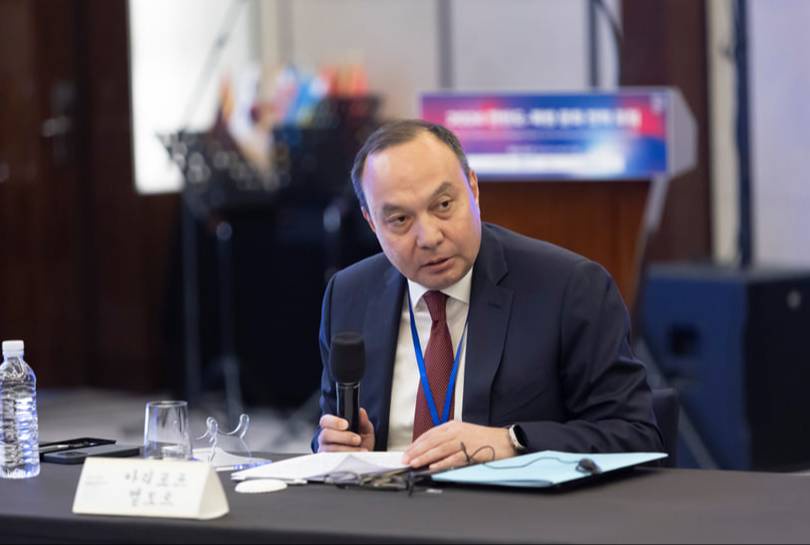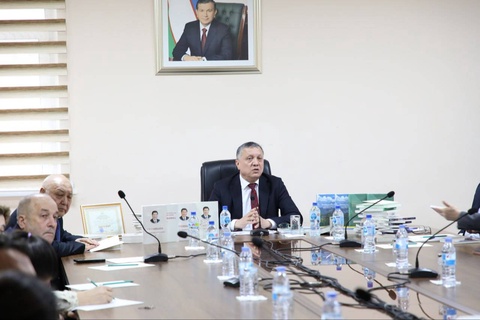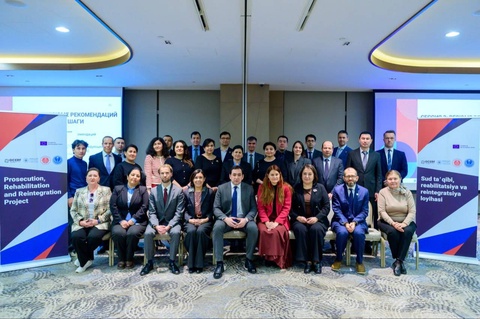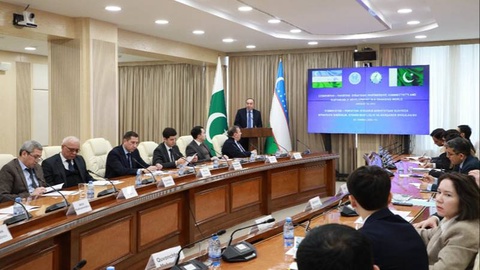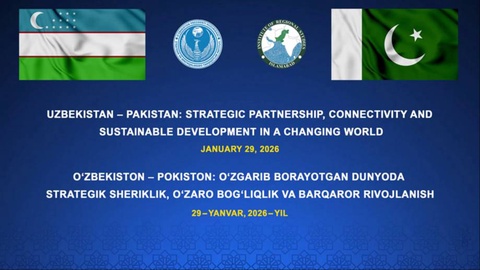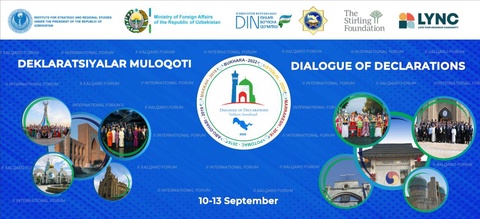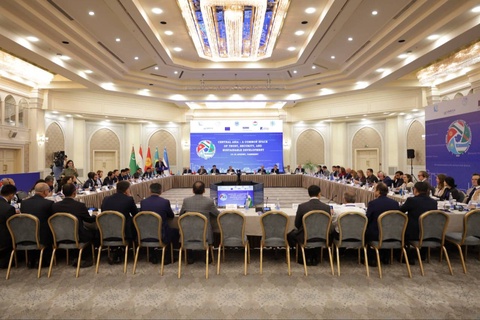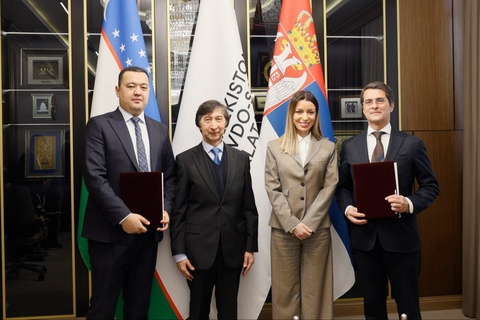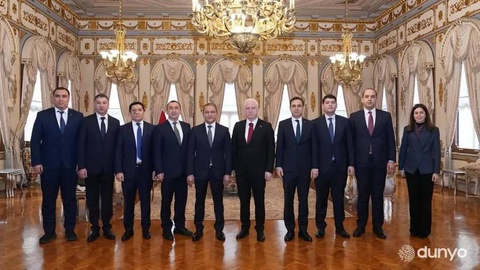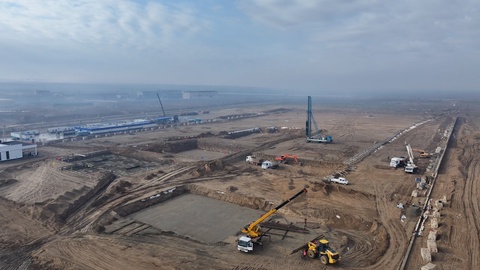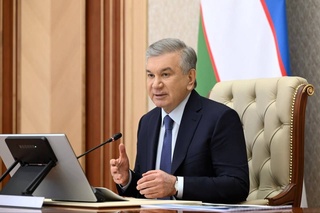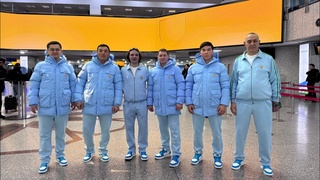The event was attended by the heads of diplomatic missions of Central Asian countries, Azerbaijan, Georgia and Turkey accredited in the Republic of Korea, as well as representatives of international organizations and the media. For the first time, the directors of strategic research institutes of the Central Asian states were invited to the Forum.
Director of the Institute for Strategic and Interregional Studies under the President of Uzbekistan (ISMI) Eldor Aripov spoke at the session entitled: "Strategic dialogue between the Republic of Korea and the countries of Central Asia."
As part of his speech, Eldor Aripov stated that the observed steady dynamics of economic development in Central Asia, coupled with regional consolidation, the opening of borders, a growing population and proximity to the centers of geopolitical activity increases the geostrategic importance of the region. The new Central Asia is becoming a "point of attraction" for world powers and leading states, including South Korea.
"Over the past 7 years, the total GDP of the Central Asian countries has grown by 6.3%, intraregional trade has increased 4.4 times, and the volume of mutual investments has increased almost 2 times," the expert stated.
In turn, highly appreciating Korea's relations with the countries of Central Asia, the Director of the ISMI emphasized that they are based on a strong foundation, have passed the test of time and are comprehensive.
According to him, Seoul is making a huge contribution to the modernization of the economies of the Central Asian states. Thanks to Korean investments, the automotive, chemical, metallurgical, oil and gas, information and communication and many other industries have received a dynamic impetus for development.
Eldor Aripov noted with satisfaction that since the establishment of diplomatic relations, the trade turnover between the Central Asian countries and South Korea has increased 600 times: from $15 million in 1992 to more than $ 10 billion in 2023, and the total volume of accumulated Korean investments in the region exceeded $ 18 billion.
At the same time, he pointed out, Seoul, one of the first to establish the CA+ROK format in 2007, continues to make a significant contribution to ensuring sustainable development and the implementation of important socio-economic projects in the region.
Also, according to the director of ISMI, the new cooperation initiative "K-Silk ROAD", presented during the recent visit of the South Korean leader to Central Asia, is a vivid demonstration of Seoul's commitment to building long-term cooperation with the region. "South Korea's decision to hold the first leaders' summit in the Central Asia-Republic of Korea format in Seoul in 2025 will give a great impetus to further deepening our cooperation," the expert stressed.
At the same time, speaking about the current level of cooperation between Central Asia and the Republic of Korea, E.Aripov said that "the achieved level of cooperation is impressive, but it absolutely does not reflect the huge potential that our countries have accumulated."
In this regard, in order to significantly strengthen multilateral cooperation, the expert believes it is advisable to develop specific proposals in the following areas.
Firstly, in his opinion, the development of industrial cooperation based on the transfer of South Korean experience and technologies, as well as the use of a huge production facility, is of particular relevance.
and the resource and raw material potential of the Central Asian countries.
Secondly, according to E.Aripov, another important area is building sustainable and secure supply chains. Given Korea's ambitious and long-term goals to achieve global leadership in the development of strategic technologies by 2030, the Central Asian countries can act as reliable partners in creating routes in the field of critically important rare earth elements.
Thirdly, the expert believes, it is an increase in environmental sustainability and adaptation to climate change. An important role in these issues can be played by attracting South Korea's rich experience and investments for the development of renewable energy sources, the introduction of modern water-saving and environmentally friendly technologies.
Fourth, the director of the Institute is convinced that the supporting structure of cooperation should be the development of human capital. According to him, the educational sphere should become an "anchor" area of cooperation, which will allow increasing cooperation in training based on the best best practices and standards of South Korea.
Fifth, he noted, the priority is to expand cooperation in the field of labor migration. Against the background of the increasing demographic crisis in South Korea, Central Asia can act as an important supplier of labor resources, given its increasing population growth and high level of education.
Sixth, the expert concluded, strengthening cultural and humanitarian ties is important in deepening cooperation. An invaluable asset in this regard is the large Korean diaspora, which is a "connecting bridge" and a reliable foundation for the special nature of relations between Korea
and the Central Asian countries. In this context, the director of the ISMI proposed to launch the practice of holding the annual Forum "Korean Diaspora Networks in Central Asia" with the active assistance of national Korean cultural centers in the countries of the region. According to him, this will contribute both to the preservation of the national identity of Koreans living in our region, and to further strengthening the bonds of friendship, good neighborliness, cohesion and mutual understanding between our peoples.
"I am absolutely confident that in all these areas we will be able to work purposefully and successfully with our Korean partners," concluded Eldor Aripov.
We remind you that this Forum was launched in 2021 in order to promote cooperation between the Republic of Korea and the countries located in the northern part of the Korean Peninsula (Central Asia, the Caucasus, Eastern Europe). In 2021-2022, the forums were held in Seoul, in 2023 - in Tashkent in cooperation with ISMI.


